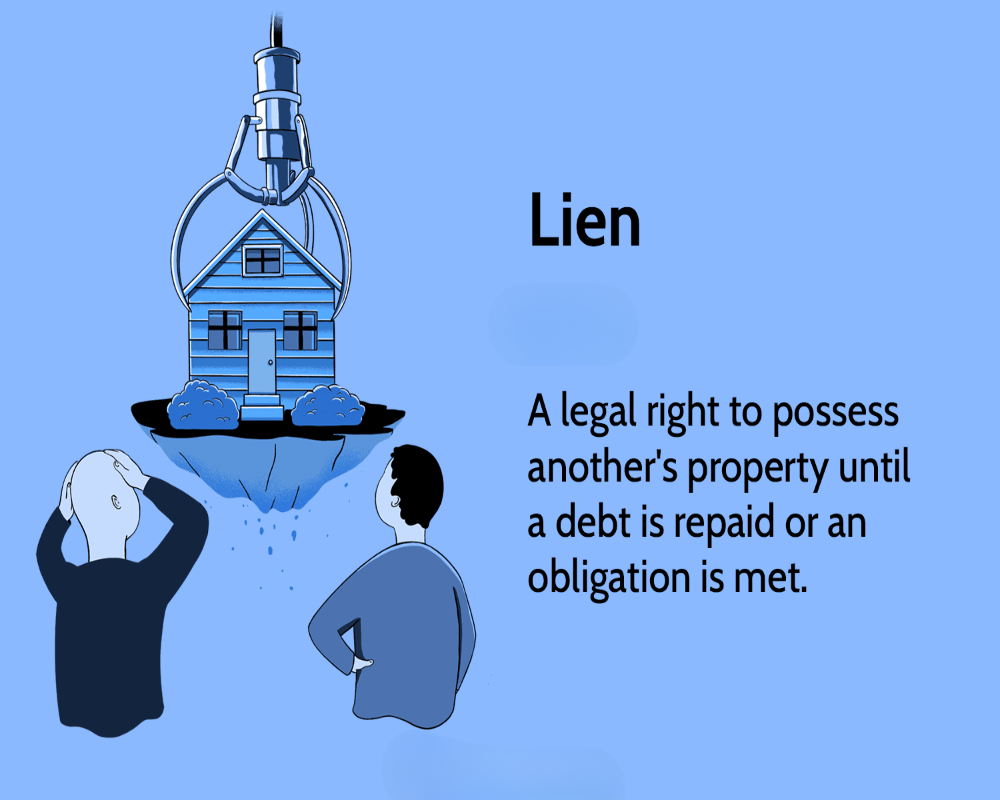Introduction
Liens are legal claims or encumbrances placed on a property to secure the payment of a debt or obligation. In commercial real estate, liens play a major role in determining the financial and legal status of a property, directly affecting ownership rights, development plans, financing options, and saleability. A lien does not transfer ownership of the property but gives the lienholder the right to take legal action—often through foreclosure—to satisfy the underlying obligation if it remains unpaid. Understanding the types, implications, and management of liens is crucial for developers, investors, lenders, and buyers engaged in commercial property transactions.
Nature and Purpose of Liens on Commercial Real Estate
A lien on a commercial property serves as a form of collateral or security interest that ensures a creditor can recover a debt by forcing the sale of the property if necessary. Liens are recorded in public records and “run with the land,” meaning they generally remain attached to the property even after a transfer of ownership unless they are satisfied or formally released.
In commercial transactions, the existence of any lien must be uncovered through a thorough title search during due diligence. Buyers, lenders, and title insurers require clear understanding and resolution of liens before closing to protect their financial interests and avoid unexpected claims after the purchase.
Common Types of Liens on Commercial Properties
Mortgage Liens are the most typical type found on commercial properties. They are created when an owner borrows money secured by the property itself. Mortgage liens are voluntary and agreed upon by the property owner, but they must be satisfied—usually through payoff at closing—before the buyer can obtain clear title.
Mechanic’s Liens arise when contractors, subcontractors, architects, engineers, or material suppliers are not paid for work performed or materials delivered to the property. Mechanic’s liens can have significant priority depending on the jurisdiction’s rules and can complicate refinancing, selling, or further developing the property.
Tax Liens occur when property taxes, income taxes, or other governmental fees remain unpaid. Municipalities can place a lien on the property to secure tax collection, and tax liens often take priority over other types of liens, meaning they must be satisfied before most other debts.
Judgment Liens result from a court ruling awarding a creditor the right to recover a debt. If a commercial property owner loses a lawsuit related to unpaid debts, damages, or breach of contract, the winning party can record a judgment lien against the property.
UCC Liens (Uniform Commercial Code Liens) are related to personal property used in conjunction with a commercial real estate asset, such as business equipment or fixtures. While UCC filings typically target personal rather than real property, they can complicate commercial real estate transactions when the assets are integrated with the property’s value or operations.
Impact of Liens on Commercial Transactions
Liens pose serious risks in commercial property transactions if not properly addressed. Properties encumbered by liens are less attractive to buyers and lenders because the liens must either be resolved prior to closing or will continue to burden the property. Lenders usually require all liens to be cleared to secure their priority lien position when issuing new mortgages.
Liens can delay or derail closings, affect title insurance coverage, impact property value, and trigger foreclosure actions if unresolved. In cases where lien amounts exceed property value, a transaction may become financially unfeasible. Furthermore, some liens—such as mechanic’s liens—may relate to hidden construction debts that were not disclosed by the seller, increasing transaction risk.
Detection and Resolution of Liens
During the title investigation phase, a detailed title search identifies all recorded liens on the property. Public records are scrutinized to uncover any claims that affect ownership. If liens are discovered, the seller is generally obligated under the purchase agreement to clear them before or at closing.
Resolution strategies include:
- Paying off liens in full and obtaining a formal release from the lienholder
- Negotiating settlements with lienholders for partial payments
- Bonding over liens, particularly mechanic’s liens, by posting a surety bond
- Structuring holdbacks from the sale proceeds to satisfy liens after closing
- Seeking court action to challenge or remove invalid liens
In cases involving complex disputes, legal counsel, title companies, and escrow agents coordinate to ensure all liens are properly addressed and documentation is recorded before ownership transfers.
Role of Title Insurance in Managing Lien Risks
Title insurance policies protect buyers and lenders against losses resulting from undiscovered liens that were not detected during the title search. However, policies often exclude liens that are public record but not properly cleared. Therefore, ensuring that all liens are fully satisfied and recorded as released is critical before closing a commercial transaction.
Extended title insurance policies and endorsements may offer additional protection against certain future lien claims, particularly in construction-driven developments where latent mechanic’s lien risks exist.
Conclusion
Liens on commercial properties are powerful legal tools that can dramatically affect property rights, marketability, and transaction integrity. Identifying, understanding, and resolving liens during the title investigation and due diligence process is essential for ensuring a smooth and legally secure real estate transaction. For buyers, lenders, and developers, the ability to manage lien risks through proactive title review, legal resolution, and robust title insurance coverage is a critical competency. In the complex landscape of commercial real estate, diligent attention to lien issues protects investments, enables clean ownership transfers, and supports the success of development and operational plans.
Hashtags
#CommercialRealEstate #PropertyLiens #RealEstateAnalysis #Liens101 #PropertyInvestment #RealEstateInvesting #CommercialProperties #LegalInsights #RealEstateLaw #PropertyDueDiligence #InvestmentStrategies #RealEstateMarket #FinancialAnalysis #PropertyManagement #RealEstateTrends #CommercialPropertyAnalysis #LiensAndMortgages #RealEstateFinance #PropertyValuation


